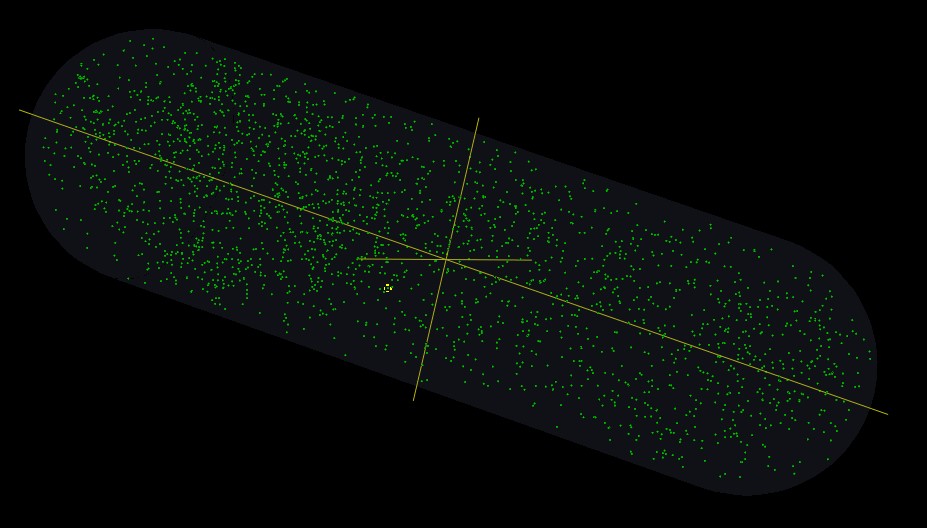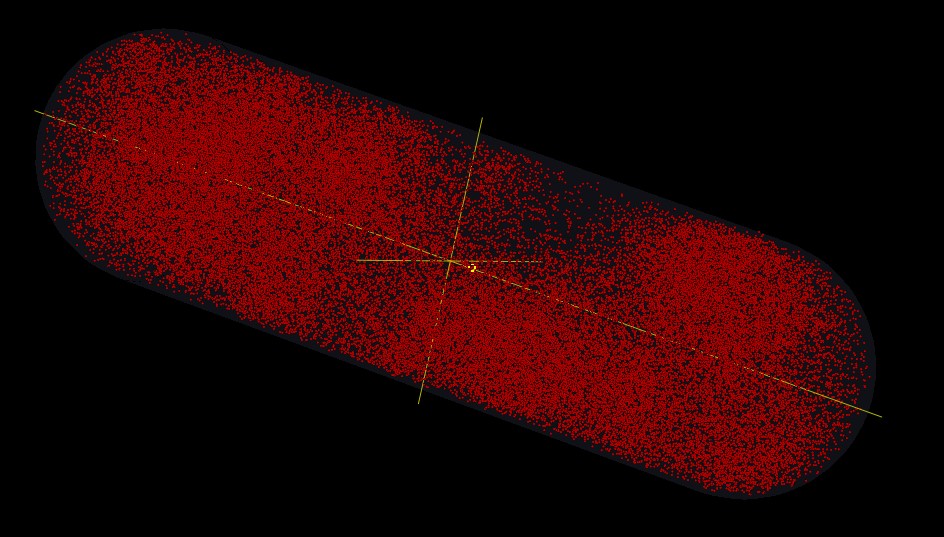Team:Paris Saclay/Modeling
From 2013.igem.org
(→How do we model?) |
(→Reference) |
||
| (9 intermediate revisions not shown) | |||
| Line 13: | Line 13: | ||
{{Team:Paris_Saclay/incl_menu_navigation}} | {{Team:Paris_Saclay/incl_menu_navigation}} | ||
Modeling | Modeling | ||
| - | [[Team:Paris_Saclay/Modeling| | + | [[Team:Paris_Saclay/Modeling|Overview]] |
[[Team:Paris_Saclay/Modeling/Simulator|Simulator]] | [[Team:Paris_Saclay/Modeling/Simulator|Simulator]] | ||
| - | [[Team:Paris_Saclay/Modeling/FNR| | + | [[Team:Paris_Saclay/Modeling/FNR|Oxygen sensor]] |
{{Team:Paris_Saclay/incl_fin_menu_navigation}} | {{Team:Paris_Saclay/incl_fin_menu_navigation}} | ||
| Line 21: | Line 21: | ||
{{Team:Paris_Saclay/incl_use_simbox}} | {{Team:Paris_Saclay/incl_use_simbox}} | ||
| - | |||
| - | |||
<big> | <big> | ||
| - | |||
| - | |||
==''What do we model?''== | ==''What do we model?''== | ||
<p>The degradation of PCBs demands multi bio-chemical reactions performing successively in aerobic or anaerobic condition. The regulator FNR is the key to control the processus. In different condition, FNR activated or desactivated, and foster or prevent some gene expression. So our super bacterium PCBs buster can be regulated by our will, and does the right thing at the right time.</p> | <p>The degradation of PCBs demands multi bio-chemical reactions performing successively in aerobic or anaerobic condition. The regulator FNR is the key to control the processus. In different condition, FNR activated or desactivated, and foster or prevent some gene expression. So our super bacterium PCBs buster can be regulated by our will, and does the right thing at the right time.</p> | ||
| Line 33: | Line 29: | ||
==''What’s our purpose for this modeling?''== | ==''What’s our purpose for this modeling?''== | ||
| - | <p>The main aim of our modeling is to | + | <p>The main aim of our modeling is to create the aero/anaerobic reporter protein expression system which corresponds to our experiments. By alternating the oxygen concentration, active or inactive FNR combines (or not) with potential reporter sensor gene sequence and make green or red color. Anyway the simulation for experimental experiences works well, we can observe the alternating red and green prtein in our model when we change the oxygen condition, so we add some additional scenarios for further test.</p> |
==''How do we model?''== | ==''How do we model?''== | ||
| - | <p>As the research of FNR regulation system is a well-studied territory, we found some excellent scientific paper in library especially | + | <p>As the research of FNR regulation system is a well-studied territory, we found some excellent scientific paper in library especially the paper of Dean A.Tolla and Michael A.Savageau. They have built successfully a differential equation system. And in our modeling we decided to redo what they have done but using a different method: a stochastic system created by a new modeling tool: [https://2013.igem.org/Team:Paris_Saclay/Modeling/Simulator Hsim]. We have also programed a online simulator which is able to perform our model on wiki without any installation in your computer. Thic online simulator works the same way as Hsim, but it is lighter and quicker. You can DIY your own simulation in this [https://2013.igem.org/Team:Paris_Saclay/Modeling/FNR page]. </p> |
==''What does our model look like?''== | ==''What does our model look like?''== | ||
| Line 51: | Line 47: | ||
</big> | </big> | ||
| - | [ | + | ==''Reference''== |
| + | *Wenmao Meng, Jeffrey Green and John R.Guest FNR-dependent repression of ndh gene expression requires two upstream FNR-binding sites Microbiology (1997), 143, 1521-1532 | ||
| + | *Parick Amar, Gilles Bernot, Victor Norris HSIM: a simulation programme to study large assemblies of proteins | ||
| + | *[http://www.ncbi.nlm.nih.gov/pmc/articles/PMC2867928/ Dean A.Tolla and Michael A.Savageau Regulation of Aerobic to Anaerobic Transitions by the FNR cycle in Escherichia coli] | ||
| + | |||
| + | written by Zhou | ||
{{Team:Paris_Saclay/incl_fin}} | {{Team:Paris_Saclay/incl_fin}} | ||
Latest revision as of 21:39, 4 October 2013
Contents |
What do we model?
The degradation of PCBs demands multi bio-chemical reactions performing successively in aerobic or anaerobic condition. The regulator FNR is the key to control the processus. In different condition, FNR activated or desactivated, and foster or prevent some gene expression. So our super bacterium PCBs buster can be regulated by our will, and does the right thing at the right time.
This modeling is about the simulation of FNR aero/anaerobic regulation system that we have successfully achieved in our experiments. Briefly, we try to build bio-informatically a model which can reveal the alternate expression of FNR and its reporter, a virtuel system include bio-chemical phenomenons from the translation of fnr to the production of reporter protein.
What’s our purpose for this modeling?
The main aim of our modeling is to create the aero/anaerobic reporter protein expression system which corresponds to our experiments. By alternating the oxygen concentration, active or inactive FNR combines (or not) with potential reporter sensor gene sequence and make green or red color. Anyway the simulation for experimental experiences works well, we can observe the alternating red and green prtein in our model when we change the oxygen condition, so we add some additional scenarios for further test.
How do we model?
As the research of FNR regulation system is a well-studied territory, we found some excellent scientific paper in library especially the paper of Dean A.Tolla and Michael A.Savageau. They have built successfully a differential equation system. And in our modeling we decided to redo what they have done but using a different method: a stochastic system created by a new modeling tool: Hsim. We have also programed a online simulator which is able to perform our model on wiki without any installation in your computer. Thic online simulator works the same way as Hsim, but it is lighter and quicker. You can DIY your own simulation in this page.
What does our model look like?
In our model, we establish a virtual cell. Inside of this cell, we simulate some different reactions about different molecules. We observe those molecules reacting in some scenarios which are prepared for testing our system. Of cause, we also reveal our experiments in the model.

| 
|
In the model here we only reveal 2 kinds of reporter protein (green and red, respectivelly regulated by activator and repressor promotor). In anaerobic condition, active FNR leads to the production of the green reporter protein and suppress the expression of the red one. In aerobic condition, FNR is inactivated by oxygen, there is no production of green reporter protein while the red reporter protein is synthetised.
Reference
- Wenmao Meng, Jeffrey Green and John R.Guest FNR-dependent repression of ndh gene expression requires two upstream FNR-binding sites Microbiology (1997), 143, 1521-1532
- Parick Amar, Gilles Bernot, Victor Norris HSIM: a simulation programme to study large assemblies of proteins
- [http://www.ncbi.nlm.nih.gov/pmc/articles/PMC2867928/ Dean A.Tolla and Michael A.Savageau Regulation of Aerobic to Anaerobic Transitions by the FNR cycle in Escherichia coli]
written by Zhou
 "
"